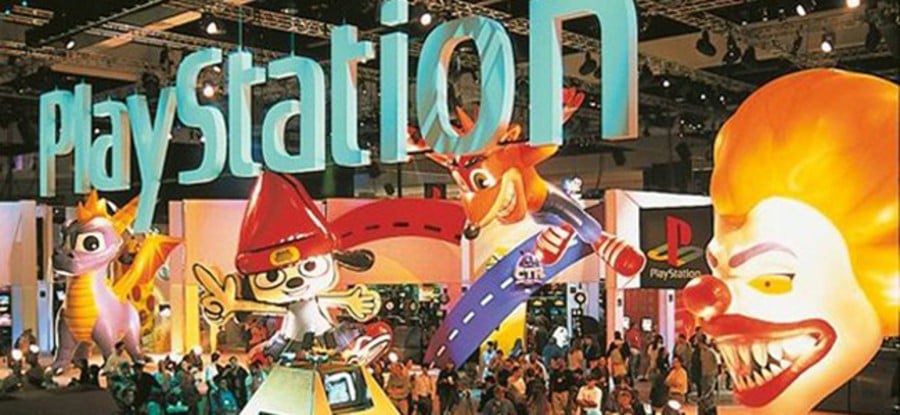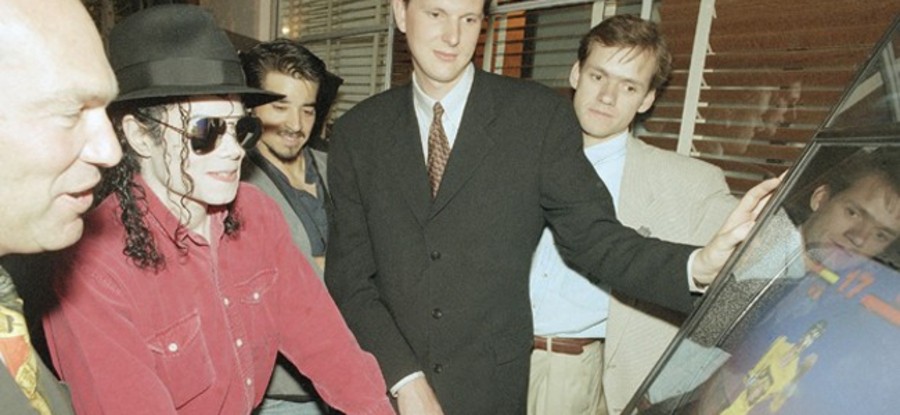
Sony's no stranger to dropping the microphone at E3 conventions. For many of you, ex-SCEA president Jack Tretton's used games beatdown will be fresh in the memory – but the affable executive was merely reading from a PlayStation playbook that was written by his predecessors many years prior. On this very day 20 years ago, the Japanese giant waltzed into the newly established Electronic Entertainment Expo, and in three words it sent shivers down the spines of its competitors: two ninety-nine.
- Further Reading
- The Making of the PlayStation
At the time, the PSone was already available in Japan, where it was nearing an install base of approximately one million units. However, many of its rivals still doubted the electronics manufacturer's ability to dominate the gaming industry; what could the Walkman maker possibly ever know about video games? As part of a famous speech at the Los Angeles convention, Icelandic executive Olaf Olafsson – who was in charge of the company's hardware and software divisions at the time – attempted to answer that exact question.
His presentation hinged heavily on the technology: CD-ROMs would enable the kind of video and sound quality previously never experienced in games before, while an emphasis on 3D graphics would separate the system from the focus on side-scrolling and isometric games that had dominated the previous decade. However, he also explained how the formation of Sony Computer Entertainment would change the game – a subsidiary that, for the first time, would fuse the firm's software knowledge with its hardware expertise.
But the show stopping moment came at the end of the short overview, when Sony Computer Entertainment America chief Steve Race was invited onto the stage to give a short presentation on the platform's price. After a slow shuffle towards the organisation's hastily assembled podium, he leaned into the microphone, cleared his throat, and declared: "Two ninety-nine." He then walked straight off to the sound of rapturous applause, not too dissimilar to those that greeted Andrew House when the PlayStation 4's price was revealed a couple of years ago.

It was Sony drawing a line in the sand, and it would ultimately go on to crush the competition as a consequence. In fact, moments earlier on the exact same day, SEGA of America boss Tom Kalinske had just announced that the SEGA Saturn – the PlayStation's biggest rival at the time – would retail for the somewhat steeper sum of $399.99 – and would be available that very afternoon. It was the Sonic the Hedgehog creator's greatest trump card, but it ended up backfiring, with retailers not prepared for the premature release – and the launch lineup ending up light.
Meanwhile, with the Ultra 64 still some way away, Nintendo used the inaugural E3 as an opportunity to promote the Virtual Boy, which would release a few months later. Various demos – including a cancelled Star Fox game – were shown for the device, but after failing to set cash registers alight, the bizarre head-mounted machine was discontinued some six or so months after its full North American release.
While these were the main stories at the time, though, smaller sub-plots were developing at the first E3 elsewhere. One particularly popular story revolves around Polygon Man, the PlayStation All-Stars Battle Royale boss that SCEA had supposedly lined up as a mascot for its initial E3 booth. Legend has it that upon seeing the character, platform creator Ken Kutaragi was incensed at the design. Phil Harrison, who was in charge of Sony Europe's gaming business back then, recalled in a famous interview: "The thing that really upset Ken was that the Polygon Man design wasn't Gouraud shaded, it was flat shaded." He remained buried until SuperBot Entertainment's mascot mash-up resurrected him some 17 years later.
Despite all of the drama, though, the E3 experiment was a success. In the early 90s, the Consumer Electronics Show had been the home for gaming – but with an attendance of 38,000 and over 700,000 square feet of floor space, the industry finally had the dedicated home that increasing sales suggested that it deserved. This year will mark the 21st event in the convention's storied history, and while SEGA may be skipping it for the first time, PlayStation's presence will be as strong as ever. Here's hoping for a few more mic drops, huh?





Comments 9
Today is also the anniversary of the NA release of the Sega Saturn which for many was the move that killed Sega in the hardware division.
I remember playing ridge racer and the difference between lotus turbo challenge and monaco gp compared to ridge racer was night and day. I remember pages and pages of tips and scoreboards dedicated to the one track and three variants.The music was like a rave in your home, and as much as yuzo koshiro could polish a turd with the streets of rage soundtrack it just blew my mind that real high quality music was bombarding my eardrums with proper 3d graphics. That launch game was probably the best launch game ever for showcasing the hardware. Its difficult to think back and as much as ridge racer has long since become redundant, 20 years ago it was unbelievable. Even Mario 64 couldn't compare.
@themcnoisy And it's still a blast to play!
Thanks Nintendo, for backing out of the deal with Sony and having them make Playstation out of spite.
I gotta get a PS4 this year. That's what I'm aiming for. Can't wait for E3.
@NomNom I was thinking the same thing. It was a dumb mistake on Nintendo's part. You can just imagine how big nintendo would be if Sony was with them.
So was that THE Phil Harrison commenting on your Twitter feed? Very cool of him if it was.
@rjejr It was! XD
@get2sammyb -
Tap here to load 9 comments
Leave A Comment
Hold on there, you need to login to post a comment...